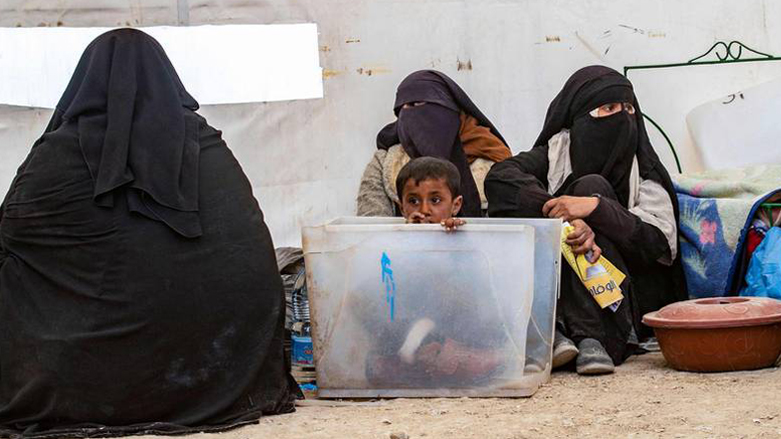France: More women, children returned from IS camps in Syria
The returnees had been detained in a sprawling, wretched and lawless camp in northeastern Syria that holds tens of thousands of women and children.

PARIS (AP) — France on Tuesday repatriated another group of women and children from former Islamic State group-controlled areas of Syria, the latest return of French nationals who'd been stranded in camps there.
The group was made up of 32 minors and 15 adult women, France's national counterterrorism prosecutor’s office said. It said the women, ranging in age from 19 to 56, were held in custody — some on the basis of arrest warrants previously issued against them. The children were placed in the care of protective services.
The returnees had been detained in a sprawling, wretched and lawless camp in northeastern Syria that holds tens of thousands of women and children, according to Kurdish authorities in the region.
Around 50,000 Syrians and Iraqis are crowded into tents in the fenced-in al-Hol camp. Nearly 20,000 of them are children; the rest are mostly the wives or widows of IS fighters.
The camp also has a separate, heavily guarded annex holding 2,000 women from 57 other countries and about 8,000 of their children.
Before the latest repatriation, Kurdish authorities Monday met with a French delegation in the northeastern Syrian city of Qamishli.
France has brought home women and children from camps in northeastern Syria in successive waves since the territorial defeat of IS in 2019.
Many European countries were slow to allow the return of women and children from areas where IS operated for fear they would violently turn on their homelands.
France saw more of its citizens join IS in Syria than any other European country, and has been especially wary about having them back.
Authorities insisted on repatriating citizens and their children on a case-by-case basis, a long and cumbersome procedure that has been repeatedly criticized by human rights groups. French authorities have also insisted that adults, men and women who fought with IS should be prosecuted in the country where they committed crimes.